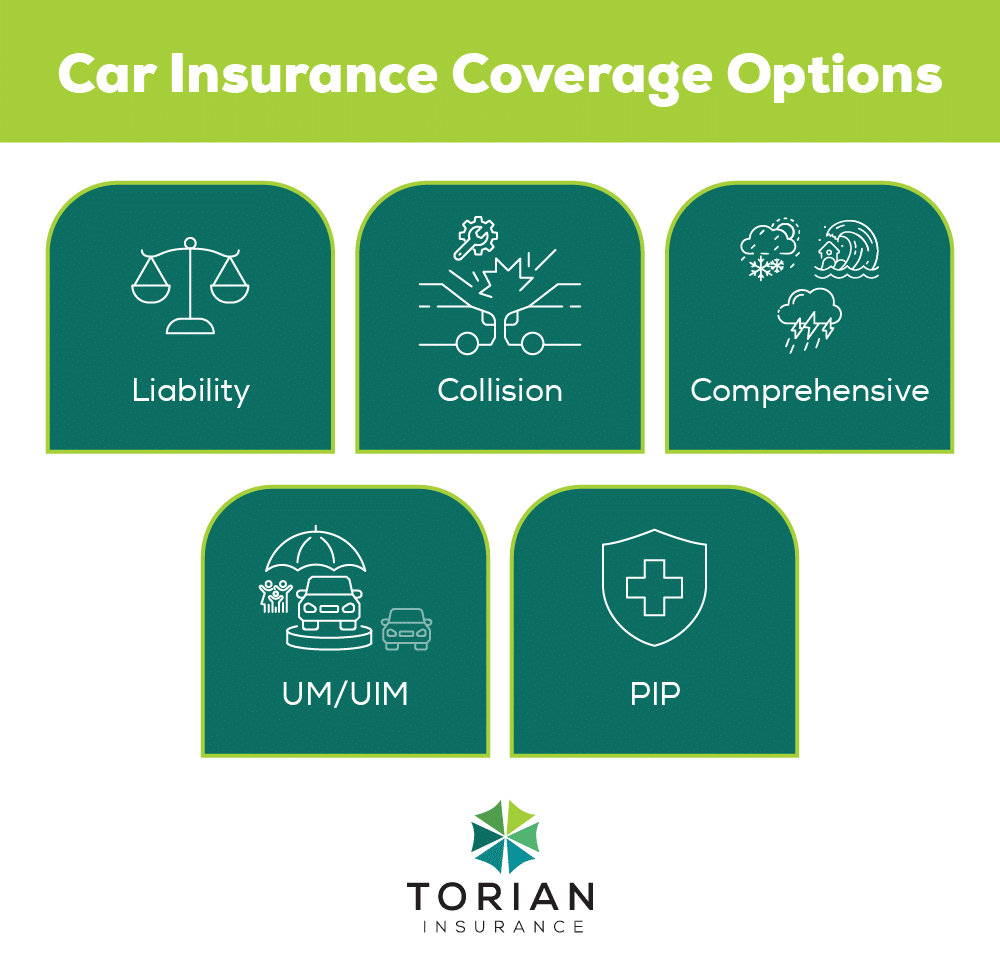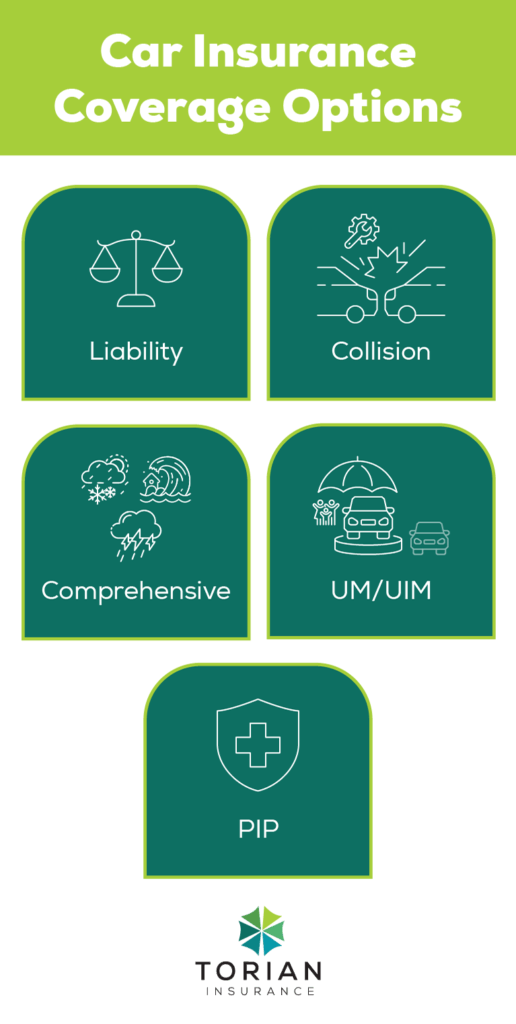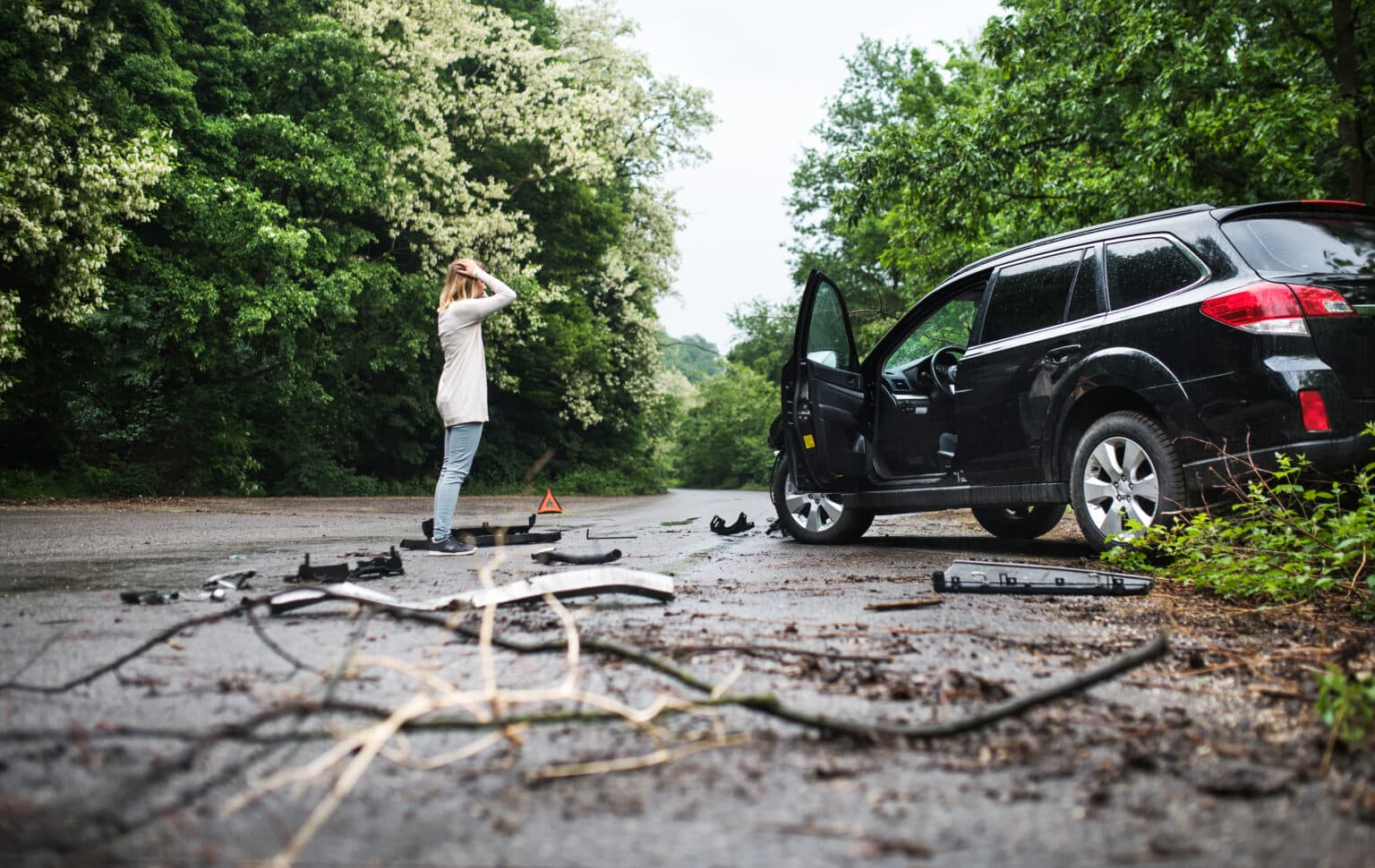Choosing the right car insurance isn’t just about meeting legal requirements—it’s about protecting yourself, your passengers, and your financial future. As an independent insurance agency serving Southern Indiana, Illinois, and Kentucky since 1923, Torian Insurance has seen firsthand how important comprehensive coverage can be. Even when you meet your state’s minimum requirements, you might still face substantial out-of-pocket expenses if something unexpected happens. From everyday commutes to long road trips, having adequate car insurance is crucial for both your peace of mind and your financial wellbeing.
In this guide, we’ll walk through the essential car insurance coverage options you owe it to yourself to understand. We’ll cover the fundamentals—liability, collision, comprehensive, uninsured/underinsured motorist (UM/UIM), and personal injury protection (PIP)—and explore why they matter. You’ll also learn the benefits of working with an independent agency like Torian Insurance, which focuses on personalized solutions for your unique circumstances. In a world of changing driving habits, evolving technology, and unpredictable weather events, staying informed is key. Let’s delve into each coverage type so you can feel empowered to make decisions that fit your lifestyle and budget.
Understanding Essential Car Insurance Coverage Options


Car insurance can feel complicated, but it’s indispensable for safeguarding you and any passengers you carry. At its core, a well-rounded policy does more than check a legal box:
- It offers financial security by covering medical bills, vehicle repairs, and potential lawsuits.
- It provides legal protection, helping satisfy the state requirements in Indiana, Illinois, and Kentucky.
- It delivers peace of mind, ensuring that an accident doesn’t spiral into a personal financial crisis.
While each state mandates a minimum level of coverage, these minimums often fall short in serious accidents. The essential car insurance options discussed here—liability, collision, comprehensive, UM/UIM, and PIP—can be combined and customized to build a robust safety net. By understanding these options thoroughly, you can make well-informed decisions about where to invest in coverage that truly protects your interests.
Liability Insurance: The Cornerstone of Your Car Insurance Policy
Liability insurance is typically considered the foundation of any car insurance policy because it handles the financial consequences if you’re found legally responsible for a collision. In most places, it’s also legally required.
Breaking Down Liability Insurance
Liability insurance includes two main components:
- Bodily Injury Liability: This covers medical expenses and lost wages for people injured in an accident you cause. It may also cover legal fees if you’re sued.
- Property Damage Liability: This covers the cost of repairing or replacing the other party’s property, such as their vehicle or fence.
Your state likely mandates a minimum coverage limit, but it’s wise to select higher limits if you have a home, savings, or other valuable assets to protect. For instance, if you were held responsible for an accident with large medical bills exceeding your insurance coverage, you might end up paying the difference out of pocket. Opting for higher liability limits can significantly reduce that risk.
Why Adequate Liability Coverage Matters
A minimum policy can leave you vulnerable. If a severe accident occurs and your liability coverage isn’t high enough, you risk personal financial losses or garnishments. Ultimately, you want a cushion that ensures you won’t have to sacrifice your personal assets to cover someone else’s medical or property damage bills. Balancing your budget with the right level of security will help you sleep better at night.
Collision Coverage: Safeguarding Your Vehicle After Accidents
Accidents happen, whether it’s a fender bender in a crowded parking lot or a more serious collision on the highway. Collision coverage helps pay for repairs or replacement of your vehicle if it’s damaged in an accident with another object, car, or even if you roll over.
What Collision Coverage Covers
Collision insurance can step in when:
- You collide with another vehicle and you’re at fault.
- You hit a stationary object, such as a guardrail or utility pole.
- Your car flips or rolls over, incurring damage.
Many drivers with newer or financed vehicles add collision coverage because lenders often require it. Even if you own your vehicle outright, collision coverage can save you from high repair or replacement costs following an accident.
Deciding on Collision Coverage
When deciding on collision coverage, consider the age and value of your vehicle. If the cost of adding collision coverage (plus your deductible) is close to what you’d spend just replacing an older vehicle, carrying this coverage may not make sense. However, if your car is newer or your budget can’t handle a sudden large repair bill, collision coverage is well worth the investment.
Comprehensive Coverage: Protection From Life’s Unexpected Events
Collisions aren’t the only way your vehicle can be damaged. Comprehensive coverage protects against non-collision incidents, including theft, vandalism, severe weather, and more.
What Comprehensive Coverage Protects Against
A comprehensive policy addresses a range of perils, such as:
- Natural disasters like hail, flooding, or tornadoes.
- Events like auto theft or vandalism.
- Unexpected encounters with wildlife, such as hitting a deer.
Although not legally required, comprehensive coverage can be a significant financial saver. If you live in an area prone to storms or if you rely on your vehicle heavily, comprehensive coverage can help bridge the gap between your budget and unforeseen catastrophes.
Balancing Costs and Risks
Comprehensive coverage often goes hand-in-hand with collision coverage, particularly for individuals with newer or leased vehicles. When deciding on coverage limits and deductibles, weigh factors like local crime rates, weather patterns, and how vital your vehicle is to your daily life. A slightly higher premium might be worth the peace of mind, especially if your area regularly faces heavy storms or has a high incidence of theft.
Uninsured/Underinsured Motorist Protection: Essential for Unexpected Situations
Not everyone on the road has sufficient insurance. Uninsured Motorist (UM) coverage takes care of damages if you’re in an accident caused by someone who carries no insurance, while Underinsured Motorist (UIM) coverage fills in the gaps when an at-fault driver’s policy isn’t enough to cover your losses.
How UM/UIM Coverage Works
- UM Coverage: Pays for your injuries, and sometimes property damage, when you’re hit by a driver with no insurance.
- UIM Coverage: Covers expenses exceeding the at-fault driver’s policy limits, including medical treatments and rehabilitation costs.
Approximately 14% of drivers in the U.S. are uninsured, which is roughly equivalent to one in seven drivers, according to data referenced by the Insurance Information Institute. Having UM/UIM coverage is crucial when you consider the risk of encountering an inadequately insured driver.
Extra Peace of Mind
Driving in areas with high rates of uninsured motorists can make UM/UIM coverage especially valuable. The last thing you want after being hit is to discover that the other driver isn’t carrying enough coverage—or any at all. By adding UM/UIM, you’re ensuring that you won’t be left handling a pile of bills someone else should be paying.
Personal Injury Protection (PIP): A Vital Safety Net for Medical Costs
Some states either require or offer Personal Injury Protection (PIP), also called “no-fault insurance.” Regardless of who caused the accident, PIP can cover expenses like hospital bills, lost wages, and even rehabilitation or in-home services for injuries.
What PIP Covers
- Medical bills: Doctor visits, surgeries, prescriptions, and more.
- Rehabilitation costs: Physical therapy or counseling needed after an accident.
- Lost wages: If you can’t work due to your injuries, PIP can compensate for some of your missed income.
Prompt Payments and Peace of Mind
PIP can significantly reduce financial strain because insurers typically pay out earlier than in fault-based claims. Even if you’re not in a no-fault state, adding PIP may be an option that helps you avoid hefty medical costs. If you have a health insurance policy with high deductibles, PIP can further cushion your finances during recovery.
The Value of Customized Car Insurance Solutions
There’s no universal blueprint for car insurance. Your daily commute, the type of vehicle you drive, and your overall financial picture should all factor into how you structure your policy. A well-tailored plan ensures you’re not paying extra for coverage that isn’t relevant to you, while still maintaining strong protection for what truly matters.
Why Personalization Matters
Rather than selecting generic options, focus on these variables:
- Your vehicle’s age and condition.
- Your typical mileage and driving environment (urban, rural, or long highway commutes).
- Your ability to pay out-of-pocket expenses.
- Your household’s specific needs if you have multiple drivers or teens just getting started on the road.
What works for a single professional with a short commute might be entirely different for a family juggling multiple vehicles. Adjusting coverage levels, choosing appropriate deductibles, and adding optional features like UM/UIM or PIP can drastically improve your overall protection.
If you’d like more information about personal lines of coverage beyond car insurance, explore the personal insurance solutions from Torian Insurance.
Why Choose an Independent Insurance Agency Like Torian Insurance
Where you buy your policy is as crucial as what coverage you choose. With a century-long heritage in Evansville, Indiana, Torian Insurance stands out as an independent agency dedicated to personalized, community-focused service.
Benefits of Independent Insurance Agents
- Access to multiple insurance carriers, making it easier to compare different quotes and coverage options.
- Unbiased advice, since independent agents aren’t limited to offering just one company’s policies.
- Local expertise, which means a deeper understanding of the specific challenges drivers face in Southern Indiana, Illinois, and Kentucky.
- Assistance during claims, providing guidance that large insurers may not offer as personally.
How to Choose the Right Car Insurance Coverage
Selecting the right coverage goes beyond clicking “purchase” on the first quote you find. Here are practical steps to help you navigate the process:
1. Evaluate Your Driving Habits and Environment
- How often and how far do you drive? Heavy commuters may need more robust coverage since they’re on the road more frequently.
- Do you drive mostly in crowded urban environments, or are you often on open highways? Congested roads can increase your accident risk, while rural drivers may contend with wildlife.
- Consider weather patterns, as severe storms or icy winters can mean additional hazards.
2. Assess Your Financial Situation
- If your vehicle is financed or leased, your lender may require specific coverage like collision and comprehensive.
- Higher liability limits can protect your savings and property if you’re at fault in a serious accident.
- Compare monthly premiums versus deductibles to find a comfortable balance.
3. Compare Policies and Options
An independent agent can present offers from various insurers, saving you time and ensuring you have a full picture of what’s available. Look at what each policy includes, pay attention to coverage limits, and factor in optional endorsements that might benefit your situation. Taking your time to compare can help you strike the right balance between protection and cost.
Emerging Trends in the Car Insurance Industry
The car insurance landscape is changing at a rapid pace. Technological innovations, shifting consumer preferences, and new types of vehicles mean coverage options will keep evolving. While these trends won’t affect everyone immediately, they’re worth keeping on your radar:
- Telematics-based insurance, where devices or apps track your driving habits and may reward safe driving with discounts.
- Growing interest in electric and hybrid vehicles, which sometimes require specialized coverage for their unique components.
- Ongoing development in semi-autonomous and fully autonomous vehicles that will influence how insurers assess risk.
- Usage-based policies for drivers who put fewer miles on their cars or only drive occasionally.
Keeping up with these changes can make a real difference in the coverage you select.
Practical Tips for Managing Your Car Insurance Policy
Even after you’ve selected a policy, ongoing maintenance can help you get the most out of your investment:
- Review your policy at least once a year, especially if you experience life changes like moving, buying a home, or adding a teen driver.
- Maintain a clean driving record; avoiding tickets and at-fault accidents can lower your premiums over time.
- Look into bundling policies—combining your home, car, or other insurance can result in discounts.
- Taking a defensive driving or safe driving course may reduce your premium, especially if you have points on your license or simply want to boost safety credentials.
Don’t hesitate to speak with your agent if your needs change or if you feel your premiums have become unmanageable.
Securing Your Future on the Road
Car insurance goes far beyond meeting a basic legal requirement—it’s a foundational part of protecting your future. Liability coverage ensures you don’t exhaust your personal finances if you cause an accident, while collision and comprehensive help repair or replace your vehicle when unexpected mishaps occur. Meanwhile, UM/UIM coverage and PIP add a crucial layer of protection against uninsured or underinsured drivers and steep medical bills.
As your life changes—be it a growing family, a job relocation, or a switch to a different vehicle—your insurance needs may evolve as well. An independent agency like Torian Insurance, with deep local roots in Evansville, Indiana, is poised to offer guidance at every turn. We compare multiple carriers and tailor plans that fit both your lifestyle and budget.
Ready to explore how robust and customized car insurance can safeguard your journeys? Reach out to Torian Insurance for a personalized car insurance solution designed to give you true peace of mind on every trip.



